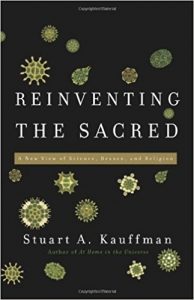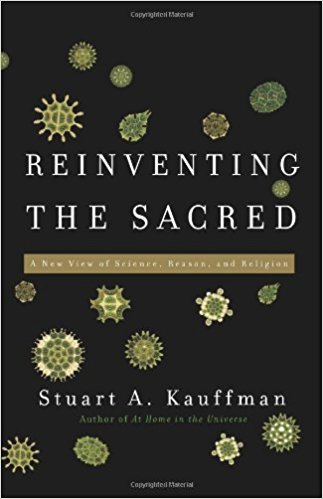The Western Enlightenment, in all its euphoria at Reason’s liberation from old-crock orthodoxies, has  thrown some babies out with the bathwater — e.g. perspectives and values that might better serve modern people. Such as? Such as common goals and values that promote individual development and satisfaction within shared senses of community. Such as universal principles by which to judge different cultural, religious and ideological institutions and actions. Rationalistic secular reductionism has been left with merely scientistic measures that seem, at least implicitly, to invariably support corporate technocratic policies.
thrown some babies out with the bathwater — e.g. perspectives and values that might better serve modern people. Such as? Such as common goals and values that promote individual development and satisfaction within shared senses of community. Such as universal principles by which to judge different cultural, religious and ideological institutions and actions. Rationalistic secular reductionism has been left with merely scientistic measures that seem, at least implicitly, to invariably support corporate technocratic policies.

Keep those babies drowned. What have we got in the meantime? Militant atheists, rampant in the current popular media—which is the only reality many of us are privy to—keep pushing the babies’ heads under, hoping to relegate these pesky items to final obscurity.

Bring back the bathwater. Meanwhile other fundamentalisms want to bring back the bathwater, embracing a range of arbitrary and mutually antipathetic certainties from transcendent spheres—new rules by divine right for our age—enforced by Guardians of the Truth, a motley array of wise folk including wild-eyed Tea Partier Imams, neoliberal ontologists and militantly secular Transhumanists who themselves unwittingly suffer from every failing they attribute to more traditional religions.
Okay, some might feel I’m fighting wild-eyed pronouncements with wild-eyed pronouncements. The difference is, mine are accurate. (Insert emoji of your choice.)

Re-legitimize the sacred. How can modern secularists learn to speak of the “sacred” or promote universalizable values and principles without blushing, without being shouted down or ridiculed, and without themselves becoming dogmatic monsters?
- They can’t, at least if they either don’t understand or else refuse to recognize “evolution” as an explanatory lens. (And something like 60 percent of the population in many countries, including the USA, reportedly fall into one or the other or both of these categories.)

- They can’t, so long as they view individual human beings as significant persons independently of their essential nature, through language use and cognition, as social beings.
- They can’t, as long as they believe the possibilities of social and political endeavor are exhausted by blind faith in absolute and arbitrary rules, on the one hand, or radically relativistic “whateverism” on the other—where we must view one belief, or value, or institution, or entire culture as good, basically, as another. Both these alternatives represent abdications of responsibility.
I’d like to pursue these matters further, but I’ve run out of gas, and nobody’s reading this malarkey anyway.
 Wait! Read this book by Stuart Kauffman. It presents an eloquent (though sometimes difficult) secular argument for another way to go — neither the conventional blind faith in authorities, including that of “science,” nor whateverism.
Wait! Read this book by Stuart Kauffman. It presents an eloquent (though sometimes difficult) secular argument for another way to go — neither the conventional blind faith in authorities, including that of “science,” nor whateverism.
And read the Magic Circles series for a way easier and funnier look at some of these issues. (Don’t worry. These novels don’t get all pedantic about things. They’re just fun. Really.) 

